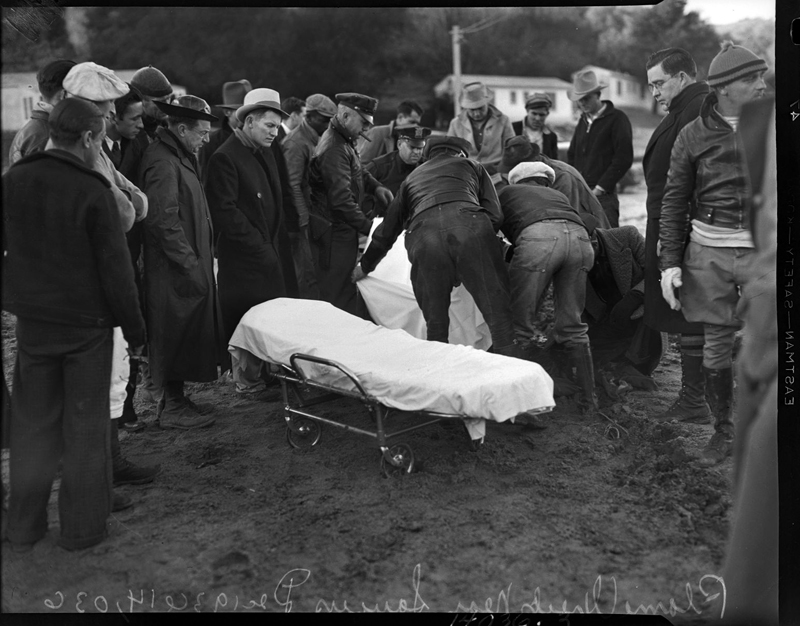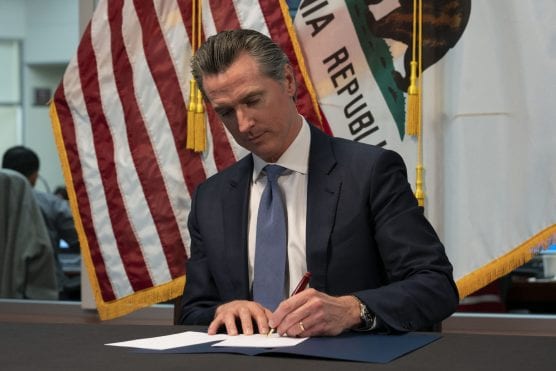SACRAMENTO – California Governor Gavin Newsom Tuesday signed into law a comprehensive six-bill relief package of immediate actions to speed needed relief to individuals, families, and businesses suffering the most significant economic hardship due to the COVID-19 pandemic.
The package, passed by the Legislature this week, builds on the initiatives in the Governor’s January state budget proposal to provide cash relief to lower-income Californians, increase aid to small businesses and provide license renewal fee waivers to businesses impacted by the pandemic. In addition to these measures, today’s action will commit additional resources for critical child care services and fund emergency financial aid for community college students.
“As millions of Californians are struggling to make ends meet amid the devastating impacts of this pandemic, we are taking immediate action in partnership with our legislative leadership to provide families and businesses the relief they need,” said Governor Newsom. “This critical assistance – including child care, relief for small business owners, direct cash support to individuals and households, financial aid for community college students and more – will help keep our communities afloat as the state continues to confront the immense challenges of this moment.”
“These bills help Californians pay their bills, and provide bread-and-butter relief to the small businesses that make our communities great, and who in turn, are the cornerstone of our economy. Stores we rely upon, restaurants we love, and services our families have turned to for years,” said Senate President pro Tempore Toni G. Atkins. “This is what we can do right now to help them, but it isn’t the end of our efforts. Not by a long shot.”
“Californians are hurting. This plan represents a way of softening the human and economic blows of COVID. More than that, it builds an economic foundation for recovery. This is the people of California saying that we will not leave behind those who are hurting most, whether they are individuals or small businesses. This is California strong,” said Speaker Anthony Rendon.
Below are key provisions of the relief package bills signed into law:
Direct Relief to Individuals and Families
* Incorporates the governor’s Golden State Stimulus plan to assist California households that have borne the disproportionate economic burden of the COVID-19 Recession – those with incomes below $30,000, as well as those unfairly excluded from previous federal stimulus payments.
* Provides $600 in one-time relief to households receiving the California EITC for 2020. In addition, the agreement provides a $600 one-time payment to taxpayers with Individual Tax Identification Numbers (ITINs) who were precluded from receiving the $1,200 per person federal payments issued last spring and the more recent $600 federal payments. Tuesday’s action also provides $600 payments to households with ITINs and income below $75,000. ITIN taxpayers who also qualify for the California EITC would receive a total of $1,200. The payments will be provided to these households shortly after they file their 2020 tax returns.
* Provides direct relief to additional lower-income Californians through a $600 one-time grant to households enrolled in the CalWORKS program and recipients of SSI/SSP and Cash Assistance Program for Immigrants (CAPI). Grant payments for CalWORKS households are expected by mid-April; timing for the delivery of SSI/SSP and CAPI grants is currently under discussion with federal officials.
Combined, the package represents a total of 5.7 million payments to low-income Californians.
Immediate Relief for Small Businesses
Provides $2.1 billion – a four-fold increase over the $500 million currently being distributed – for grants up to $25,000 for small businesses impacted by the pandemic, and allocates $50 million of this total for non-profit cultural institutions.
Fee Waivers for Heavily Impacted Licensees
Two years of fee relief for roughly 59,000 restaurants and bars licensed through the state’s Department of Alcoholic Beverage Control. Fees can range annually from $455 to $1,235. The action also reflects fee relief for more than 600,000 barbering and cosmetology individuals and businesses licensed through the Department of Consumer Affairs.
More Resources for Critical Child Care
Addition of just over $400 million in new federal funds to provide stipends of $525 per enrolled child for all state-subsidized child care and preschool providers serving approximately 400,000 children in subsidized care statewide. The new federal resources will extend care for children of essential workers through June of 2022, and funds increased access to subsidized child care for more than 8,000 children of essential workers and at-risk children – who are not currently served in the system – through June of 2022.
Additional Aid for Individuals and Families
Provides an additional $24 million for financial assistance and services through Housing for the Harvest – a program providing support for agricultural workers who have to quarantine due to COVID-19. The effort also provides a combined $35 million for food banks and diapers.
Emergency Financial Relief to Support Community College Students
Provides an additional $100 million in emergency financial aid for qualifying low-income students carrying six or more units, with award amounts to be determined locally and made available by early April. In addition, the agreement provides $20 million to reengage students who have either left their community college studies because of the pandemic or to engage students at risk of leaving.
CalFresh Student Outreach and Application Assistance
Provides roughly $6 million to support outreach and application assistance to University of California, California State University and California Community College students made newly eligible for CalFresh – the state-administered federal program for supplemental food assistance. The agreement also provides $12 million in state funds to support associated county administrative workload.
In addition, the following provision is included in today’s action:
Restoration of Reductions
Restoration of the previously enacted reductions, effective July 1st, for the University of California, California State University, the Judicial Branch, Child Support Services, and for moderate-income housing.
The governor signed the following relief package bills into law Tuesday:
* AB 81 by Assemblymember Philip Ting (D-San Francisco) – COVID-19 relief.
* AB 82 by Assemblymember Philip Ting (D-San Francisco) – COVID-19 pandemic emergency: contact tracing: childcare.
* AB 85 by the Committee on Budget – Budget Act of 2020.
* SB 87 by Senator Anna Caballero (D-Salinas) – California Small Business COVID-19 Relief Grant Program: income tax: gross income: exclusion: small business grants.
* SB 88 by the Committee on Budget and Fiscal Review – One-time stimulus payment: delinquent accounts: Earned Income Tax Credit: statements.
* SB 94 by Senator Nancy Skinner (D-Berkeley) – Alcoholic beverage control: barbering and cosmetology: license renewal fees: waiver.
For the full text of the bills, visit http://leginfo.legislature.ca.gov.
Like this:
Like Loading...
Related





 Tweet This
Tweet This Facebook
Facebook Digg This
Digg This Bookmark
Bookmark Stumble
Stumble RSS
RSS


























REAL NAMES ONLY: All posters must use their real individual or business name. This applies equally to Twitter account holders who use a nickname.
2 Comments
Too late dude….you screwed things up pretty good!
I wish you would stop saying “Due to COVID-19 pandemic”. The relief is needed due to the Gov. Newsom’s lockdown, not the virus.